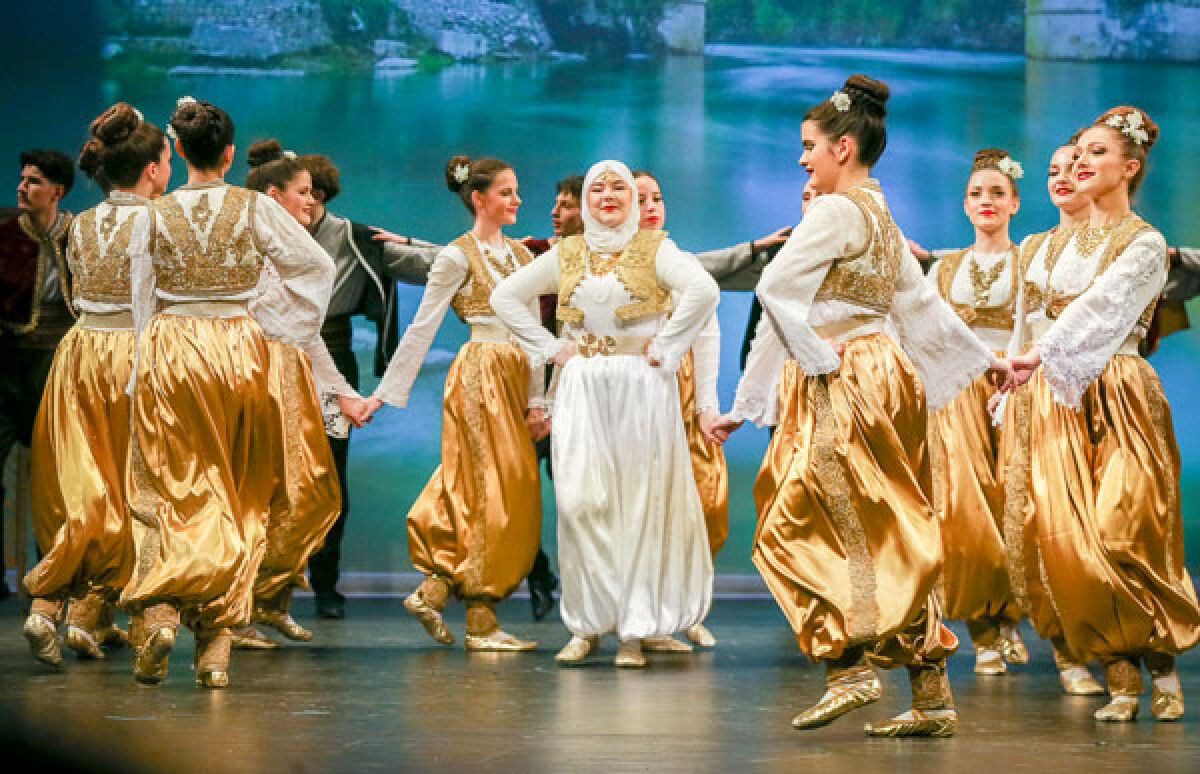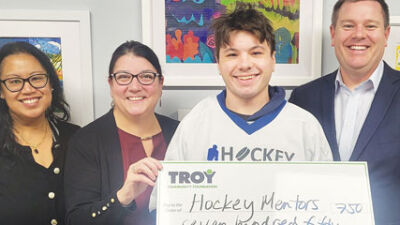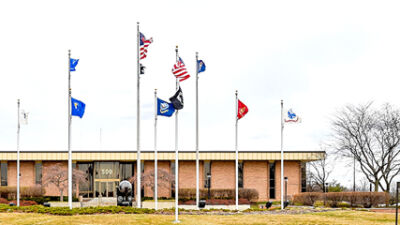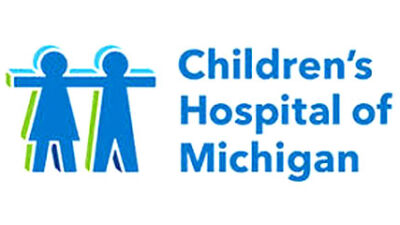TROY — The Bosnian American Cultural Center is showing off its best moves and celebrating 25 years of operating in the metro Detroit area.
The organization hosted a 25th anniversary celebration Jan. 20 at the Warren Consolidated Schools Performing Arts Center, where they demonstrated traditional Bosnian music, dances and clothing.
“The center is really focused on performing arts and on promoting Bosnian culture and tradition, including music, dance, song and poetry,” said Edis Tokovic, a board member for the Bosnian American Cultural Center. “During the celebration we have our kids who have been practicing for a number of years doing traditional Bosnian dances in traditional Bosnian clothing.”
Emina Alic is a longtime member of the cultural center and the mother of two of the children performing.
“The dance group has about 155 kids in it this year,” she said. “We have kids from the age of 4 to high school students.”
The cultural center operates in a space at the Balkan American Community Center in Troy, which has allowed them to host dance practices, athletic programs and cultural seminars.
“The Bosnian American Cultural Center was established in 1999 in Hamtramck. It was a landing ground for new immigrants, since there was a sizable community at that time,” said Edis Tokovic. “In the last 15 years, we have been here in Troy, renting space at the Balkan community center on Big Beaver. We have been practicing and performing here ever since.”
Tokovic’s daughter, Aisha Tokovic, was among the performers. She is a senior at International Academy East in Troy.
“I’m dancing in a few of the dances, presenting parts of our culture,” said Aisha Tokovic. “We have a dance from Sarajevo. … There are dances from southern Bosnia and the Sandžak and Kresevo regions. We try to show different parts of our culture and demonstrate different dances from different parts of Bosnia.”
Alic’s daughter, Zekija Alic, a student at Boulan Park Middle School, was among the other performers.
“I’m going to be dancing and doing some speaking things — acting and reading something about Bosnian dialects and explaining about different Bosnian villages,” said Zekija. “It’s definitely helped connect me to my heritage.”
Both said that having a place to connect with where they come from and what their family’s heritage is has been very meaningful.
“This definitely helped me connect with my heritage,” said Aisha Tokovic. “It’s sort of the main channel of connection. We all speak the same language. We all can connect with each other. It connects us to traditional clothing, traditional music and traditional folk stories. I have so much fun. I’ve been doing it since I was 5 years old and haven’t stopped yet.”
“I did it when I was little for a couple of years, until I was about 7 years old, and then I started back up last year,” added Zekija Alic. “I think I came back because when I came to a concert here I remembered how many people here I knew and how affected I was.”
Emina Alic said that when most Americans think of Bosnia, they remember the war there that lasted from 1992 to 1995. She went on to say that it’s the reason most of these Bosnian families are living in the United States.
“The war in Bosnia ended 29 years ago,” she said. “Pretty much the entire Bosnian community came here as refugees postwar. This is one of our most enduring organizations. It was one of the first that was established; 25 years later, it’s only grown stronger, and we have students participating who live all over the metro Detroit area and even from Ann Arbor and Washtenaw County.”
Edis Tokovic hopes that events like this will help the public see how deep their country’s culture goes and view it beyond the legacy of the war.
“The story of the Bosnian community is typically the story of the war and the breakup of Yugoslavia and all of the tragic events surrounding that,” he said. “What we really want to focus on at this event, and what we want to teach the new generation, is about being part of a new home while promoting a positive message. There is so much the Bosnian community can offer the metro Detroit community besides the tragedies that happened 30 years ago. We’re going to demonstrate that through dance and music and having a celebration of culture. We don’t want to forget what happened, but we want to move on from those things that made such a deep mark.”
He hopes this event will open up their community to others.
“The main focus is for us to teach our new generations about their traditions and heritage and also present it to the larger metro Detroit community and showcase the traditions of where we come from and show we have something to bring to the community,” he said. “It’s a quarter century of existence and promoting our culture, and we are very excited.”
 Publication select ▼
Publication select ▼




















